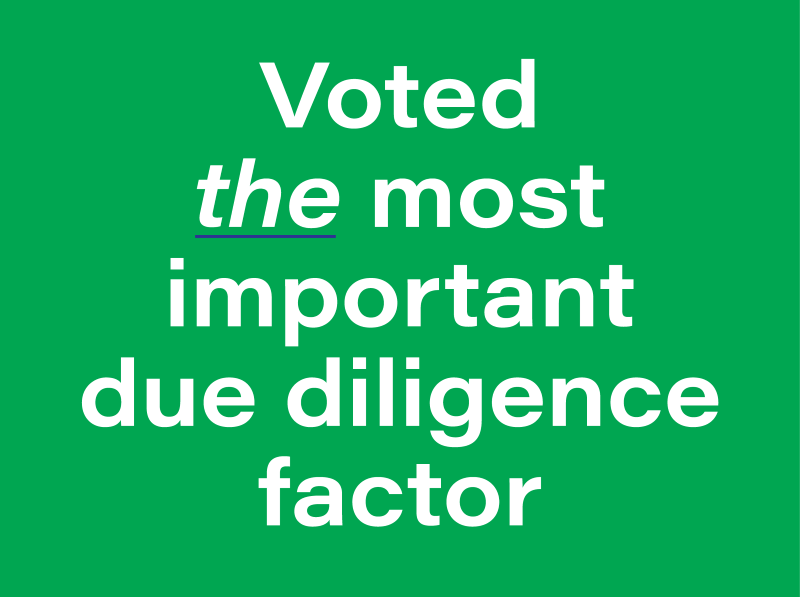Welcome to the twenty-seventh in a series of articles offering insights and tips to prepare money management firms for improving their abilities to out-market competitors and attract assets from sophisticated investors in the coming post-pandemic world.
The good folks in the investment management group at the law firm of Seward & Kissel recently published their annual Alternative Investor Allocator Survey. The audience they polled this year comprised 33% high net worth individuals (HNWI)/Family Offices, 27% funds-of-funds, and 10% each of endowments, foundations and non-profits, investment consultants and seeders. We were told that this survey was distributed in January and the responses were gathered from January to some cutoff date in March.
Hedge funds seeking to raise assets should give heed to what these polled allocators said. Here, quoting from the survey, is the most important question asked and allocator response given:
During the manager sourcing process, how would your organization categorize the following by level of importance?
When sourcing investment managers for potential allocations, investment process (93%) was overwhelmingly identified as "very important", followed by performance (41%) and then pedigree (28%). The length of a manager's track record closely followed with 21% of participants identifying this as "very important".
In comparison, in Seward & Kissel’s 2021 Alternative Investor Allocator Survey, when queried about their top three considerations when making allocations, 86% of investors ranked investment strategy/process as the most often considered factor, with track record coming in at 55% and manager pedigree at 53%.
Interpreting the 2022 responses
None of the survey responses from this year or last are surprising. Among sophisticated institutional investors, understanding and buying into a portfolio manager’s investment process has always been the most important factor in deciding which manager with acceptable performance and pedigree to allocate to.
However, in this new 2022 allocator survey, Investment Process smoked all other due diligence vetting considerations. How come? And why was performance and pedigree now perceived among allocators to be so less crucial to their manager selection decision making?
Let’s start with the How come? If you give it a think it should occur to you: Covid-19.
Covid did not significantly dissipate in 2021, as hoped. It dragged on. Supply chain problems, travel restrictions, work from home and all the rest kept on going. Covid-triggered economic uncertainties on a global basis continued, often morphing from some event driven issues being a focal point for investors in one quarter to slightly different ones in other quarters.
These are not your typical global macro issues for which portfolio managers and investors have a tried and tested playbook for managing through such times. Therefore, as many sophisticated investors are likely to think, how important or relevant is relatively recent past performance and pedigree for operating in what has been for many years an always upward, long bull market pre-Covid?
What the responses likely didn’t take into account
Note as mentioned above that the survey responses came in from January – March. Based on our anecdotal experience, most responses to a survey tend to arrive in the early weeks, not months after the survey is distributed. So, it is reasonable to expect that most of this survey’s responses were from January and February this year.
Now consider the investing challenges that the majority (if not all) of the allocators’ survey responses did not take into account and therefore do not reflect: Russia and inflation.
In mid-March, just when it seemed that maybe more milder forms of Covid variants might become the norm — and maybe that might die down enough to prudently enable more people to safely get back to work in office buildings — Russia and its unprovoked, brutal war began.
So now, on top of Covid, there is this added, atypical geopolitical danger for which portfolio managers and investors have no tried and tested playbook for managing through such times.
Also, since the January-February period, there has been significantly more focused attention — by the media, by investors and portfolio managers — to inflation and how that is impacting investing.
What this means for your hedge fund
Taken together, the impacts of Covid plus Russia plus inflation on managing a portfolio are drawing sophisticated investors to further increase their scrutiny of the active management strategy implementation details of how portfolio managers are running their investment processes.
Communicating investment process thinking and manager opinion about how to assemble and manage a portfolio, no matter the asset class or strategy type, is so far and away crucial to winning mandates from sophisticated and institutional investors that your executive team better give a rethink to how you are handling this vital part of your asset raising efforts.
It’s time to improve your marketing abilities
Now that you know what 93% of allocators are going to be paying most attention to when reading your fund’s marketing collateral and listening to your verbal pitch, you need to become more professional storytellers than you have been to date. What actions will your hedge fund take to modify and improve its asset raising communications content and delivery, both in print and by your staff?
This reevaluation of and improvement to your communications and sales marketing and should be a priority for your executive team.
# # #

 Responsive HTML Retina Ready Bootstrap Goodness
Responsive HTML Retina Ready Bootstrap Goodness
